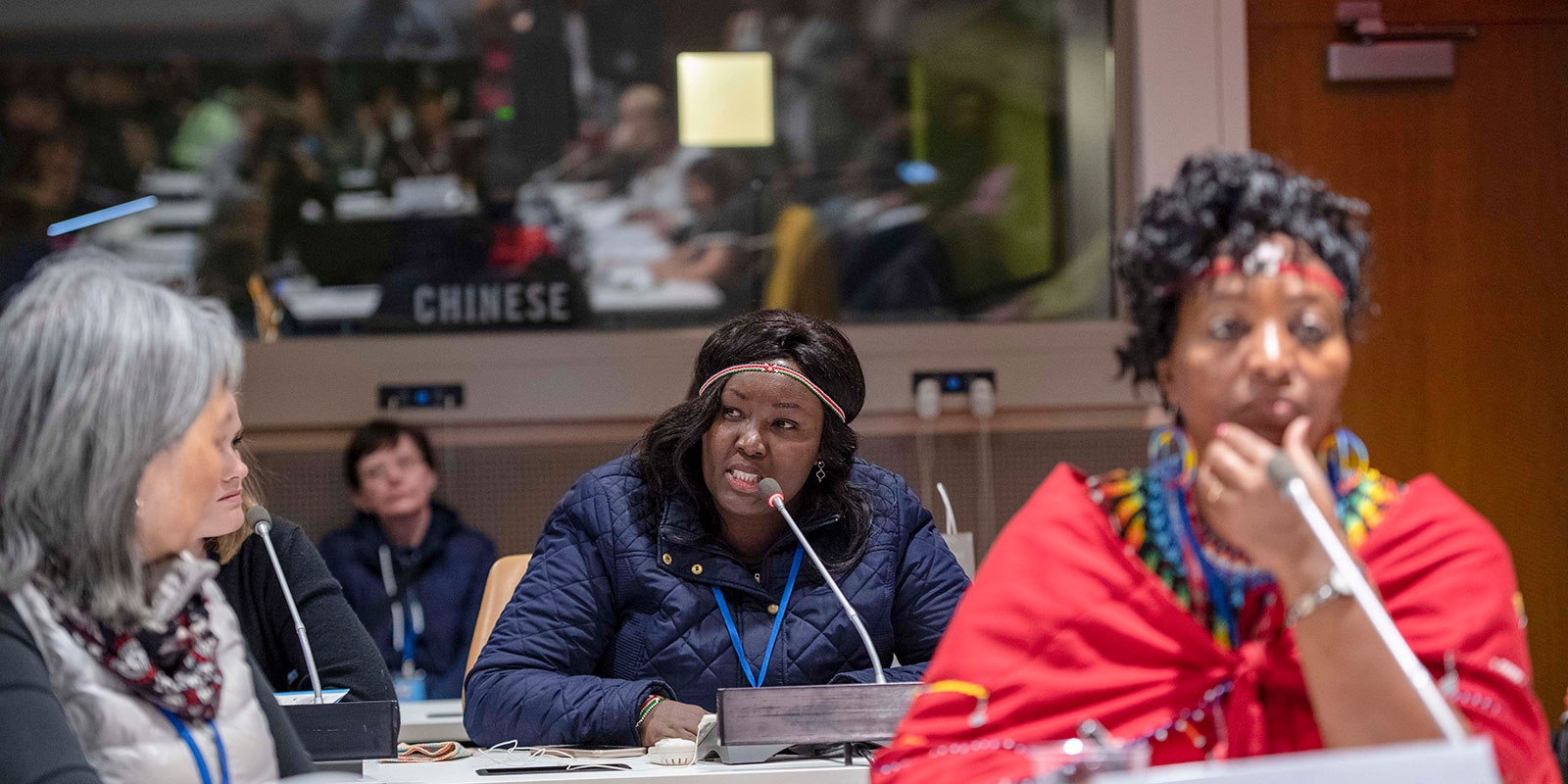COVID-19 has and continues to exemplify the notion of compound risk. Even today as one part of the work is protecting its population, the largest part remains at enormous risk, as vaccines supplies dry up for those nations. Like the rest of the world, Africa is faced with the COVID-19 crisis but Africa has demonstrated a response which reflects solidarity and unity in efforts to pull together in the face of this enormous adversary. I think, this should also be our approach in responding to the age of compound risk.
The #COVID19 pandemic demonstrated once more that in times of crisis, women and girls bear the brunt of the impact and are the ones at the front of the risk @AUBinetaDiop
Tweet
Fragility is increasing in youth populations that constitute the majority of the demographics in Africa. The informal economy, that constitutes the source of income for a large portion of the population, has been hit hard. In various regions of the continent, conflicts continue to affect livelihoods and to compound the misery of people. We recently saw the huge displacements caused by the conflict in the Northern part of Mozambique, Ethiopia and others.
In all these experiences, and learning from the past, we know that ultimately, it is coming around tables that bring in peace. As we face these multiple factors of instability and risk, mediation is needed more than ever. We have continental efforts like the creation of the Pan African Network of Women Mediators, that aim to prevent and mediate in conflicts at all levels.
We have efforts to enhance the role and leadership of women, through a network of women leaders, the African Women Leaders Network (AWLN) that is looking forward at the transformation of the continent, to ensure that no one is left behind.
These initiatives and countless others that have been created across the continent to enhance and secure women’s meaningful participation and leadership in peace processes are also supported by a number of policy frameworks at the African Union (AU), the Regional Economic Communities and National Governments. From the AU’s Continental Results Framework for reporting and monitoring on the implementation of the Women, Peace and Security Agenda in Africa, the SADC Protocol on Gender and Development to the 30 National Action Plans on Women, Peace and Security, there is no doubt that the policy infrastructure is there to ensure the realisation of women’s meaningful participation in mediation.
As we face multiple factors of instability and risk, #mediation is needed more than ever @AUBinetaDiop
Tweet
Yet, despite these policies, we have seen in the past year how fragile the progress is and the very clear gaps between policy adoption and meaningful implementation as women and girls have been disproportionally impacted by the pandemic.
Acknowledging that we are operating in an age of compound risk, we must also turn our attention to domesticating UNSCR 1325 and the other policies so that women and girls in local communities are the first responders to conflict. This will also ensure that they can reap the benefits of such policies and give meaning to the words on the page. One way of doing so, is to ensure that the policies, and especially UNSCR 1325 and the Maputo protocol are translated into local languages. We must also ensure that there is accountability, meaning that these policies and goals have dedicated ownership and leadership, and that there are robust mechanisms to measure the implementation of these policies.
Ultimately, the quest to leave no one behind in an age where we are facing compound risk, requires that a new mediation and dialogue culture is brought in, to address collective security, continental development and governance for a truly peaceful and inclusive Africa.
Mme Bineta Diop is the AUC Special Envoy on Women, Peace and Security, and founder and chairperson of the board of Femmes Africa Solidarité (FAS).
This piece is drawn from a presentation made by Mme Bineta Diop at a Virtual High-Level Panel on Promoting Peace in the Age of Compound Risk, organised by ACCCORD during the 2021 Stockholm Forum on Peace and Development, on 07 May 2021.


